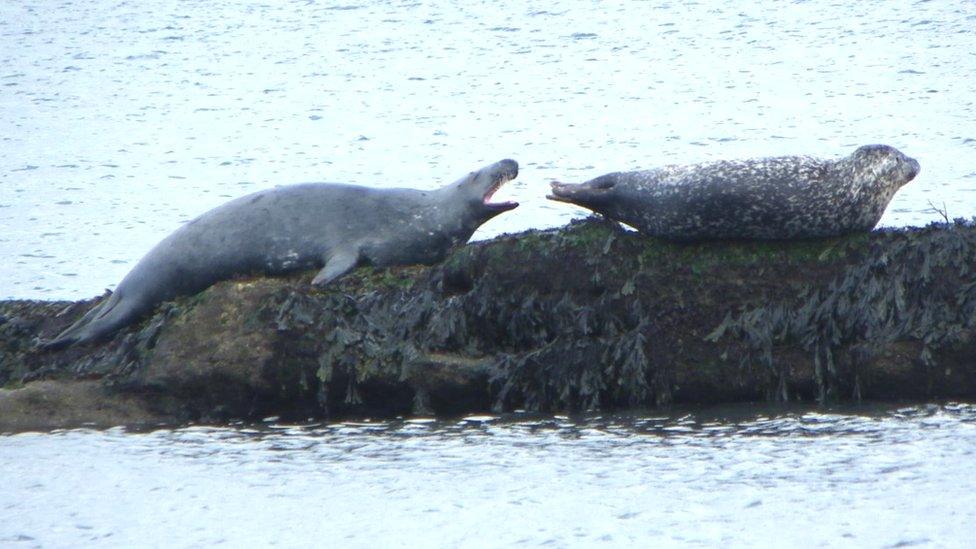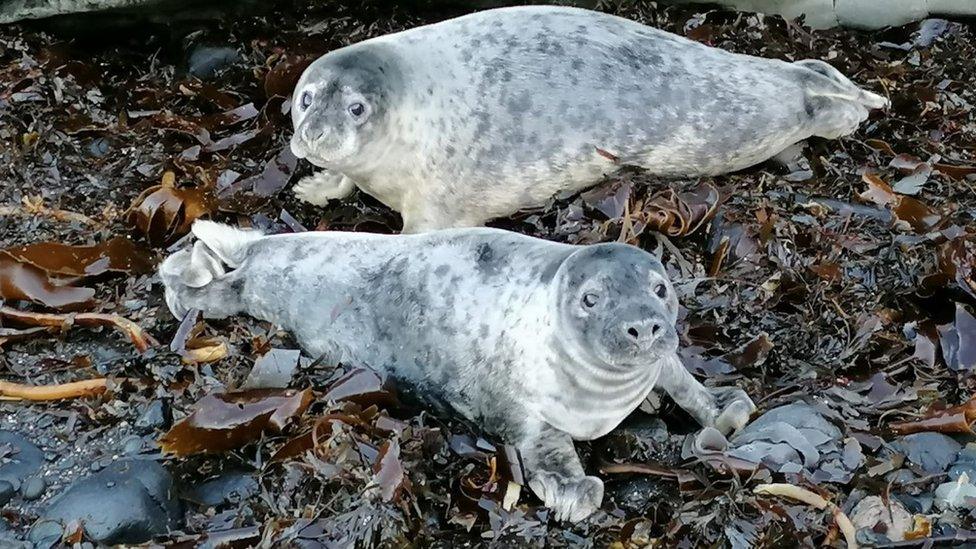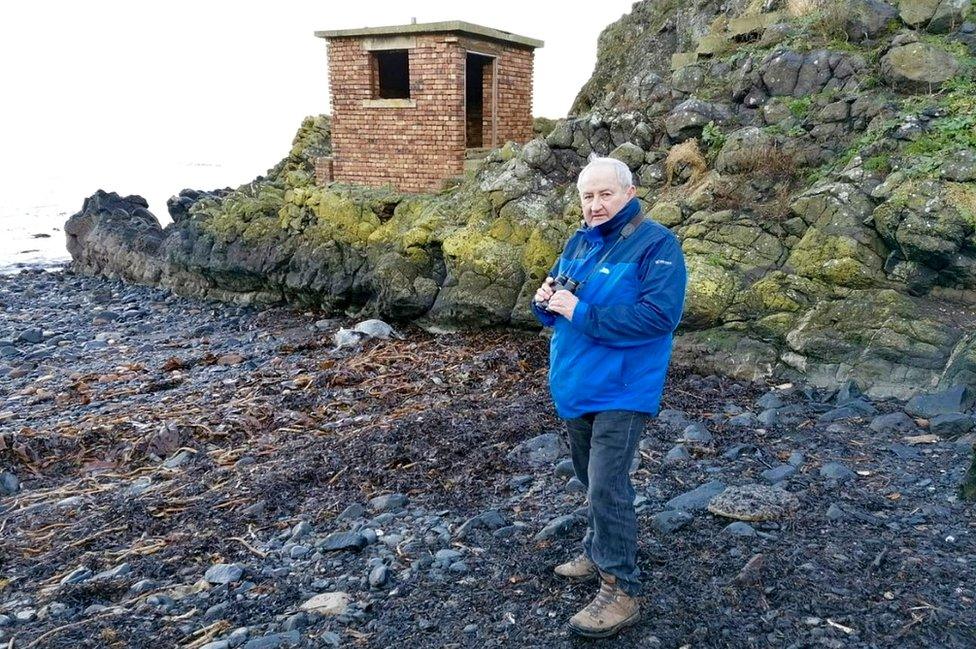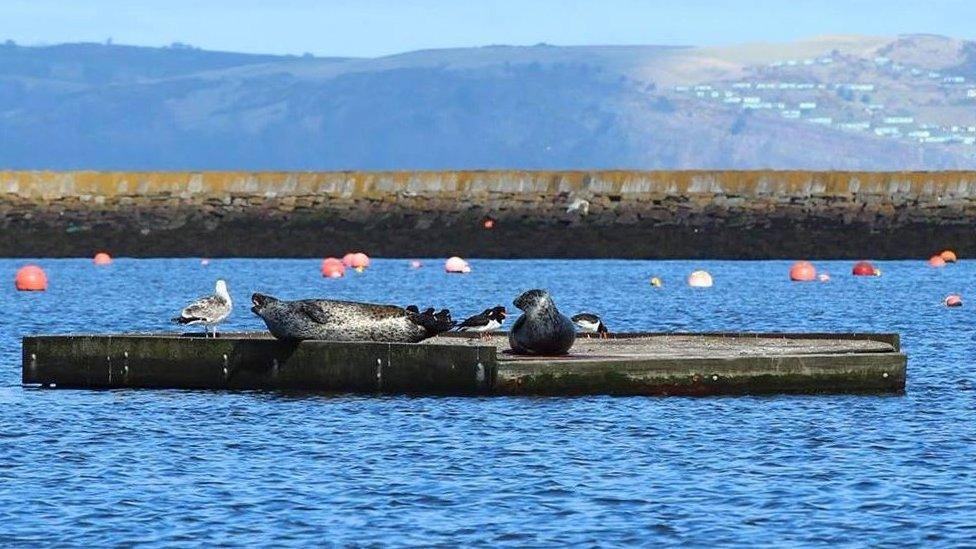Harbour seals under 'serious threat' in Firth of Forth
- Published

Grey seals (left) are larger and stronger than harbour seals (right)
Harbour seals are under "serious threat" in the Firth of Forth amid a surge in the population of grey seals, local experts have warned.
They estimate that numbers have fallen by about 40% since the 1990s.
The larger grey seals are now taking over the areas where harbour seals - also known as common seals - would traditionally "haul out" of the water.
That has forced harbour seals on to public beaches where they are being disturbed by humans.
Now pontoons have been created at Wardie Bay in Edinburgh's Granton in a bid to provide them with a safe haven.

Grey seal pups on Inchkeith Island in the Firth of Forth last week
Ron Morris, chairman of the Fife Seal Group, said there were now just 100 harbour seals in the estuary, compared to about 800 resident grey seals.
During the breeding season, which runs from October to end of December, about 4,000 grey seals travel to the pupping grounds in the Firth of Forth.
As a result, the harbour seals' traditional haul-out rocks and beaches, around safe uninhabited islands in the Forth, are now being taken over by grey seals.
Mr Morris said: "We appear to have lost some harbour seals to attacks from grey seal bulls.
"However, their greater threat is from their displacement from their remote haul-out rocks on to public beaches.
"This has become a serious threat to the harbour seal in the Firth of Forth."

Ron Morris has been monitoring seals for decades in the Firth of Forth
The seals are at risk of being disturbed by dogs being walked on the beaches, kayakers and others using the water, and even people trying to take selfies with the seals.
"Since I started monitoring them in the 1990s we have lost as much as 40% of the harbour seal population in the Forth," said Mr Morris.
"In the 1980s harbour seals occupied more haul-out sites in the Forth, now you never see a harbour seal at Inchcolm Island."
Seals need to haul out of the sea to digest food, moult, rest and to rear pups.
Grey seals lie on rocks in herds, pressed together like sardines, whereas harbour seals prefer having space around them to roll around.
Karen Bates, founder of the Wardie Bay Beachwatch group in Granton, said the harbour seal had become "the red squirrel of the sea" due to the impact of grey seals.

Harbour seals like space between themselves
Red squirrel numbers in the UK have fallen dramatically since grey squirrels were imported into the UK, with efforts under way to try to preserve the native species.
Harbour seals and grey seals are both native to Scotland, but greys are bigger and more powerful.
Ms Bates said two pontoons had been erected in the bay in the last week, and within a day the harbour seals had started hauling out onto them.
"They need more safe haul-out areas so they don't have to go onto public beaches," she added.
"They are safer away from human interference and dogs. They are wild animals and there needs to be a balance between nature and us.
"We need more pontoons like the ones in our bay around the Forth coastline."